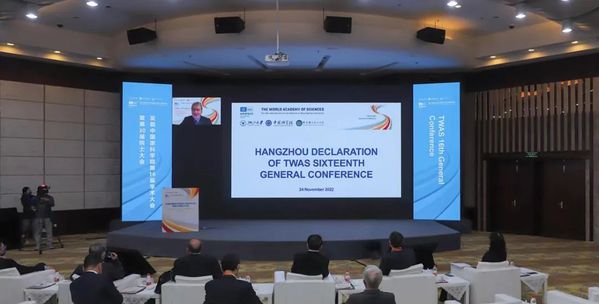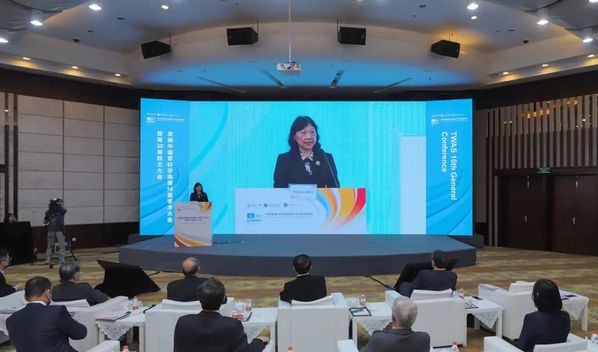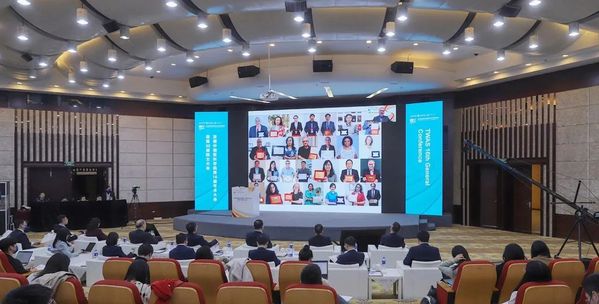On the evening of November 24 (Beijing Time), the 4-day 16th General Conference of the World Academy of Sciences for the advancement of science in developing countries (TWAS) was successfully concluded at Zhejiang University.

At the conference, Hangzhou Declaration was released, stressing the vital role of basic sciences to attaining sustainable development goals and promoting the well-being of humanity, and calling for more emphasis and investments on basic sciences in development countries. It aims at broadening open access, furthering knowledge-sharing, promoting interdisciplinarity, attracting and sustaining young researchers of science- and technology-lagging countries, and creating a global scientific scenario that is open and inclusive.

HE Lianzhen, vice president of Zhejiang University, delivered closing remarks. "The Conference Declaration sends a strong call for inclusiveness, interdisciplinarity and cooperation in the development of basic sciences. As one of China's leading universities, ZJU not only feels the weight of responsibility but also sees the opportunities ahead. By working with global partners, we shall continue to enhance education and research in basic sciences, bridge the gap between basic and applied research, and embrace Open Science as a key approach to international scientific cooperation."
The themed of the TWAS 16th General Conference was "Basic Sciences for Evidence-based Decision-making and Sustainable Development in the Global South", complimenting the momentum created by the International Year of Basic Sciences for Sustainable Development, a key moment for global mobilization on a priority of great importance to TWAS. The Conference advocated the spirit of open science without borders, barriers and discrimination, made China's voice heard in the form of the Declaration, led developing countries to work together, strengthened South-South scientific cooperation, tapped into the potential of North-South international cooperation, and opened a new chapter of global cooperation in basic sciences.

The Conference also honored the 50 newly-elected TWAS fellows, 10 of whom hail from China. At the Conference, 27 scientists received the 2022 TWAS Awards and Medals in different categories. BAI Chunli, immediate past president of TWAS, president of the Alliance of International Science Organizations and honorary president of the Presidium of the Academic Divisions, Chinese Academy of Sciences, was awarded the TWAS-Abdus Salam Medal for his great contributions to the advancement of science and technology in the developing world, and to the growth of TWAS
The Conference was organized by TWAS and hosted by Zhejiang University. Nearly 800 scholars, including 90-plus Chinese scientists, participated in the Conference.






